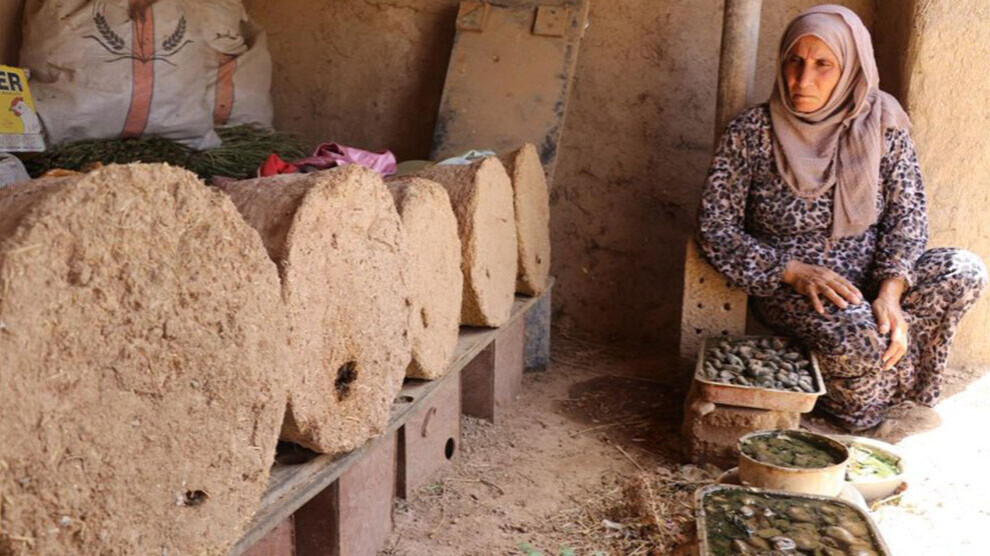Sakîne Faris has been keeping bees in Amûdê for ten years and makes beehives out of clay. She can meet her basic needs with the honey produced by her bees.
The Rojava Revolution is a revolution of women. Economic independence for women is, therefore, one of the central basic principles. Countless women have been able to become independent of men in this way. One of them is Sakîne Faris. She has had bees for ten years and makes beehives out of clay. In Northern and Eastern Syria, beekeeping is a source of income, albeit a small one. Most beekeepers now use wooden beehives. In some places, however, people are now using beehives made of clay again.

Clay provides air conditioning in the great heat, and consumers and beekeepers alike speak of a higher quality of honey thanks to that.
Sakîne Faris lives in Xerazê near Amûdê. The honey produced by her bees is well known in the neighborhood. The 41-year-old mother of seven was married at 15. Ten years ago, her mother-in-law gave her a clay hive in the spring to look after. Sakîne Faris began to take great interest in the hive and the bees.

As her bees multiplied, Sakîne Faris increased the number of hives. In 2023, the number of her hives increased to 25. Sakîne Faris professionalized and began to sell the surplus honey.
Threatened by climate change
But the effects of man-made climate change are threatening beekeeping. Due to drought, the flora is declining more and more and the productivity of the bees is falling. As a result, Sakîne Faris has been forced to sell more and more hives. She now has only seven hives, but they still allow her to finance the basic needs of her household.
Sakîne Faris also switched to the production and sale of traditional clay hives. She highlighted the benefits of clay hives to the ANHA news agency: “I make hives out of earth and straw. Three days after making the hives, we can put the bees in. Clay hives are better for the bees because they protect them from the heat in summer and the cold in winter.”

